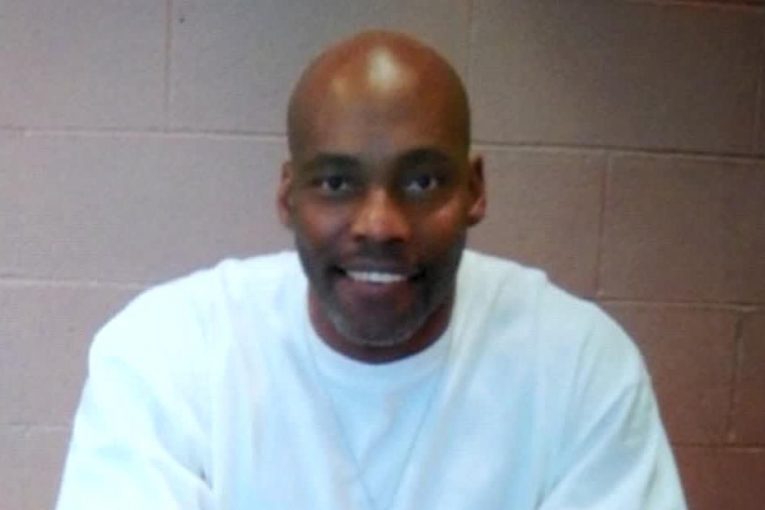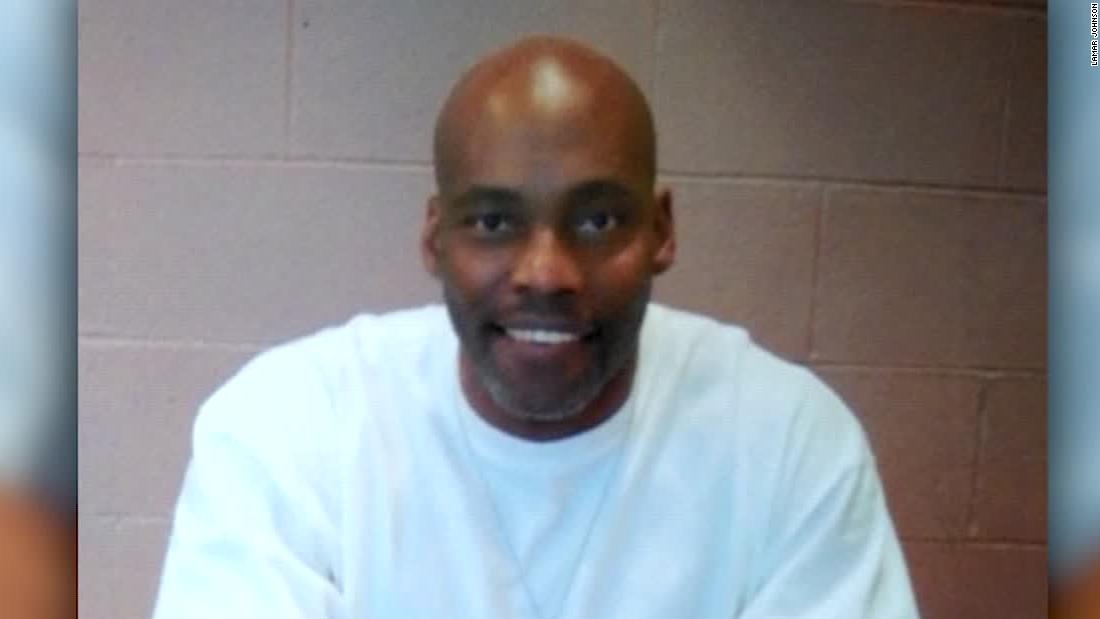

By David M. Greenwald
The Missouri Supreme Court rejected an appeal of Lamar Johnson’s 1995 murder conviction, despite the fact that St. Louis Circuit Attorney Kim Gardner filed a motion for a new trial, claiming newly discovered evidence demonstrating Johnson’s innocence.
The court did not rule on the merits of the case but rather on the narrow grounds as to whether there is authority to appeal for a new trial after a criminal conviction becomes final. The court ruled that no such authority exists and therefore dismissed the appeal.
As the Court notes, “The final judgment in this criminal case was entered in 1995. Johnson does not purport to appeal from that 1995 judgment. He already exercised his right to appeal from that judgment, and the court of appeals affirmed the judgment in an unpublished memorandum.”
The court writes that “this case is not about whether Johnson is innocent or whether there exists a remedy for someone who is innocent and did not receive a constitutionally fair trial. This case presents only the issue of whether there is any authority to appeal the dismissal of a motion for a new trial filed decades after a criminal conviction became final. No such authority exists; therefore, this Court dismisses the appeal.”
Kim Gardner called the ruling “deeply disappointing.”
“Our Conviction Integrity Unit determined there is clear evidence to suggest that Lamar Johnson has wrongly sat in prison for over 20 years, convicted of a crime he did not commit,” Gardner said in a statement.
On July 12, 1995, Lamar Johnson was found guilty of first degree murder, sentenced to life without parole.
Gardner established a Conviction Integrity Unit in 2017 and began investigating the conviction. A motion for a new trial was filed “based upon Lamar Johnson’s evidence of prosecutorial misconduct that affected the reliability of the verdict and newly discovered evidence of actual innocence.”
In that motion, Gardner cited four grounds for relief: “newly discovered evidence of innocence, including the confessions of two other men, who admitted to murdering the victim and stated Johnson was not involved,” evidence of perjury by material witnesses including the sole eyewitness who recanted his identification of Johnson and the shooter as well as false police testimony regarding his alibi location; the state’s repeated failure to disclose exculpatory evidence “including evidence that the sole eyewitness was paid to identify Johnson” and the state’s “knowing presentation of false and perjured testimony at Johnson’s trial.”
The Attorney General argued the Circuit Attorney “had no authority to file the motion for new trial and the circuit court had no jurisdiction to consider the motion because it was untimely.”
Judge Jaura Stith writes that while a motion for a new trial “is not now available to Mr. Johnson, he can seek the same relief by filing a petition for writ of habeas corpus.”
Johnson did so, the judge noted, “because the attorney general, who represents the State in habeas proceedings, has opposed his previous pro se attempts to seek habeas relief, and they have been denied without a hearing.”
The AG argues that “he is required to oppose Mr. Johnson’s attempts to obtain a hearing on his newly discovered evidence.” Otherwise, he would become an advocate for the defendant.
The judge disagrees, “In suggesting it is his duty, and that of the circuit attorney, as representatives of the State, to oppose a request for habeas or similar relief, the attorney general misunderstands the full extent of the prosecution’s role in the justice system.”
Instead, the judge notes, “the state attorney’s role is to see that justice is done—not necessarily to obtain or to sustain a conviction.”
Chief Justice George Draper, while concurring with the result, writes, “I write separately because I believe there is another alternative procedure from which a circuit attorney may seek to overturn a wrongful conviction.”
He argues that the language of the law “does not foreclose the circuit or prosecuting attorney from bringing an independent action in equity when justice so requires.”
Justice Draper writes: “One’s sense of justice and belief that innocent people should not be imprisoned for crimes they did not commit requires there to be some mechanism for the state to redress an error it helped create.”
He adds, “While I believe the circuit attorney should be allowed to file an independent action pursuant to Rule 74.06, such an independent action has not been filed. Instead, Johnson and the circuit attorney request this Court treat their motion for new trial as an independent action in equity by looking to the substance of the motion rather than its title or form.”
“A prosecutor has a responsibility to ensure convictions are sound, not to defend them at all costs,” said Miriam Krinsky, Executive Director of Fair and Just Prosecution. “That’s why elected prosecutors from across the country repeatedly filed amicus curiae briefs supporting relief for Mr. Johnson – in the trial court, on appeal and in the Missouri State Supreme Court – urging Missouri courts to not only grant Mr. Johnson anew trial, but, more broadly, to respect the power and obligation of prosecutors to investigate and correct cases where wrongful convictions have occurred.”
“This case is about the duty of a prosecutor to be a true minister of justice,” Kim Gardner added. “In fact, the prosecutor’s duty to pursue justice does not stop when a conviction is secured.
“We will continue to seek justice in this case, and will use every tool within the power of the Office of the Circuit Attorney to ensure the pursuit of justice for individuals where there is evidence of a wrongful conviction. What is at stake is equal justice under the law, and public trust in the integrity of the entire criminal justice system.”
—David M. Greenwald reporting
To sign up for our new newsletter – Everyday Injustice – https://tinyurl.com/yyultcf9
Support our work – to become a sustaining at $5 – $10- $25 per month hit the link:






